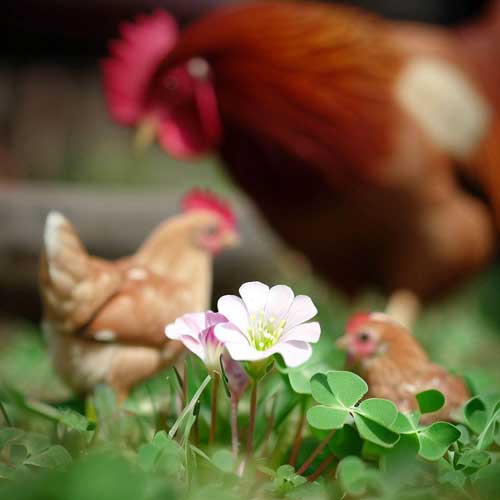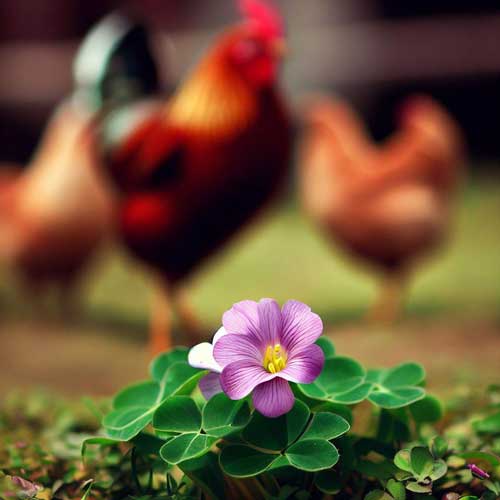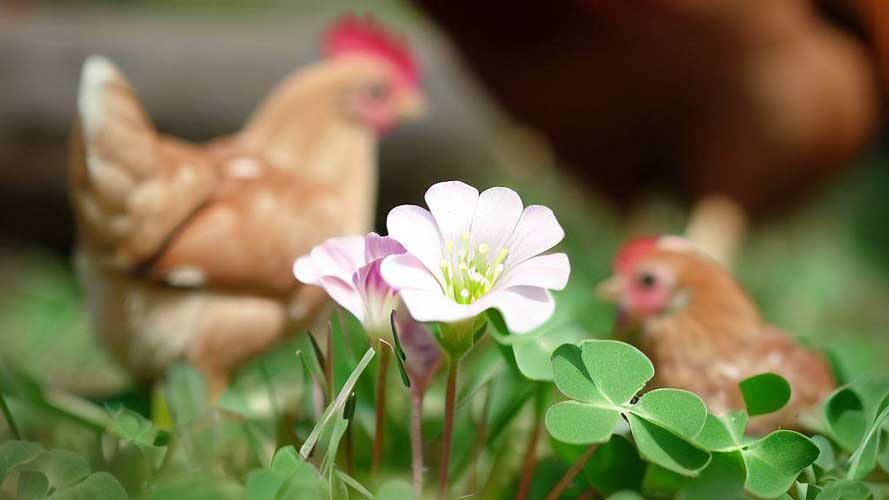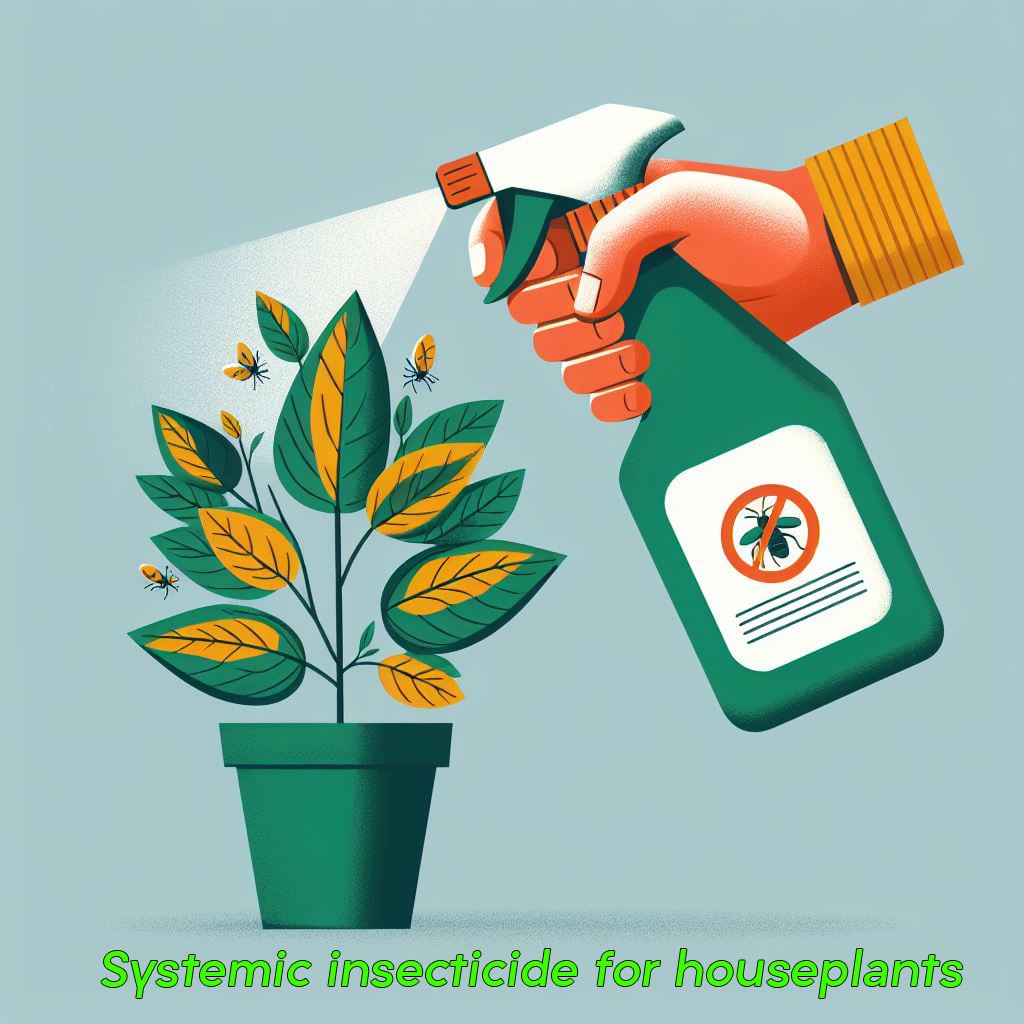Is Oxalis poisonous to chickens?
Oxalis is a plant species found in many regions of the world and is generally considered a weed in some areas. Each species of Oxalis, including certain subspecies and cultivars, may have different characteristics. However, generally speaking, some species of Oxalis can be toxic to chickens if consumed.
In this article, we want to discuss whether is oxalis poisonous to chickens. So please be with us until the end of this article.
Considering reasons for poisonous to chickens?
Oxalis plants contain oxalic acid, which is present in significant amounts in some varieties. Oxalic acid can act as a toxin in chickens. Consuming excessive amounts of this plant can harm chickens and cause symptoms such as nausea, vomiting, decreased activity, respiratory problems, and, in severe cases, toxicity and death.
[blockquote author=”College of Agriculture and life Science” link=”https://poisonousplants.ansci.cornell.edu/php/plants.php?action=faqs&num=175″ target=”_blank”]The sour, soluble oxylates in Oxalis species would be harmful to livestock if they ate enough to interfere with blood calcium and magnesium homeostasis, but if your kids were to nibble a little, they would be OK.[/blockquote]
If you have chickens and you intend to include Oxalis in your diet, it is advisable to use it in moderation and limited quantities. Consult with your veterinarian for advice on incorporating Oxalis into the chicken’s diet. Additionally, diversifying the chicken’s diet with other food sources can help reduce the risk of Oxalis poisoning.

However, the best way to ensure the health of your chickens is to consult with veterinary professionals or local experts in poultry health. They can provide specific guidance and advice based on your situation.
What is oxalis?
Oxalis is a genus of flowering plants in the family Oxalidaceae. It comprises hundreds of species that are commonly known as wood sorrels or shamrocks. These plants are distributed worldwide and can be found in a variety of habitats, including grasslands, forests, and gardens. Is oxalis poisonous to chickens is important in this article.
Oxalis plants are herbaceous, meaning they lack woody stems, and they typically have trifoliate leaves, meaning each leaf is divided into three leaflets. The leaves can vary in shape and color, ranging from green to purple or reddish hues. The flowers of Oxalis plants are usually small and have five petals, coming in various colors such as white, yellow, pink, or purple.

While some species of Oxalis are cultivated as ornamental plants, others are considered weeds due to their ability to spread and compete with desired vegetation. Some species of Oxalis, as mentioned earlier, contain oxalic acid, which can be toxic if consumed in large quantities. However, it’s important to note that not all species of Oxalis are poisonous, and the level of toxicity can vary among different species and cultivars.
In addition to their ornamental uses, certain Oxalis species have culinary uses in different cultures. The leaves and flowers of some species are edible and can be used in salads, soups, or as a garnish, adding a tangy or sour taste.
Overall, Oxalis is a diverse genus of plants with various species, some of which have decorative value, while others may require caution due to potential toxicity.
How oxalis can be effective for the chickens?
Oxalis plants are not typically considered a primary or beneficial food source for chickens. While some chickens may occasionally nibble on Oxalis leaves or other parts of the plant, it is not a recommended or essential component of their diet. Is oxalis poisonous to chickens is important in this article.
It’s important to note that certain species of Oxalis contain oxalic acid, which can be toxic to chickens if consumed in large amounts. Oxalic acid can interfere with calcium absorption and potentially lead to health issues such as mineral imbalances or calcium deficiencies.
Therefore, if you have chickens, it is generally advisable to focus on providing them with a balanced diet that includes appropriate chicken feed, grains, vegetables, fruits, and other suitable food sources. These will provide the necessary nutrients for their health and well-being.
If you are considering adding any new plant material to your chickens’ diet, including Oxalis, it is recommended to consult with a veterinarian or poultry nutritionist to ensure that it is safe and appropriate for your specific flock. They can provide guidance based on the nutritional needs of chickens and help you make informed decisions regarding their diet.
How the toxins of Oxalis can impress the chickens?
Some species of Oxalis contain oxalic acid, which can be toxic to chickens if consumed in large quantities. Oxalic acid is a naturally occurring compound found in various plants, including Oxalis. When chickens ingest plants high in oxalic acid, it can interfere with calcium absorption and lead to several potential health issues:
-
Hypocalcemia
Oxalic acid binds with calcium in the digestive tract, forming calcium oxalate crystals. This reduces the availability of dietary calcium, which can result in hypocalcemia (calcium deficiency) in chickens. Hypocalcemia can lead to problems like weak bones, eggshell abnormalities, muscle tremors, and impaired nerve function.
-
Kidney damage
Calcium oxalate crystals can accumulate in the kidneys over time, causing damage to the renal tissues. This can impair kidney function and potentially lead to kidney stones or other renal problems in chickens.
Digestive disturbances
Ingesting large amounts of oxalic acid can cause gastrointestinal upset in chickens. This may manifest as symptoms such as nausea, vomiting, diarrhea, or decreased appetite.
It’s worth noting that the concentration of oxalic acid can vary among different Oxalis species and cultivars. Some species have higher levels of oxalic acid than others, making them more potentially toxic. Therefore, it’s crucial to be cautious when exposing chickens to Oxalis or any plant containing oxalic acid.

If you suspect your chickens have ingested a significant amount of Oxalis or are exhibiting any abnormal symptoms, it is advisable to consult with a veterinarian who specializes in poultry or avian health. They can provide appropriate diagnosis, treatment, and guidance based on the specific situation.
What are the things that can help us to decrease the poisons of oxalis for the chickens?
To decrease the potential toxicity of Oxalis for chickens, you can take the following measures:
-
Moderation
Limit the amount of Oxalis that chickens have access to. While small amounts of Oxalis may not be harmful, excessive consumption increases the risk of toxicity. It’s best to offer Oxalis as a treat in moderation rather than a significant portion of their diet.
-
Diversify the diet
Provide a balanced and varied diet for your chickens. Including a wide range of nutritious foods such as commercial chicken feed, grains, vegetables, fruits, and other suitable forage options can help dilute the potential toxins of any single plant, including Oxalis.
-
Consult a poultry nutritionist or veterinarian
Seek professional advice from a poultry nutritionist or veterinarian with expertise in poultry health and nutrition. They can provide specific recommendations based on your flock’s needs, including appropriate feeding practices and the inclusion of any potentially toxic plants in their diet.
-
Identify and remove toxic varieties
If you have control over the specific species or cultivars of Oxalis present in your chickens’ environment, choose non-toxic or low-toxicity varieties. Some species of Oxalis have lower levels of oxalic acid, reducing the risk of toxicity.
-
Monitor for signs of toxicity
Regularly observe your chickens for any signs of illness or abnormal behavior. If you suspect Oxalis toxicity or notice symptoms such as nausea, vomiting, diarrhea, decreased activity, or respiratory difficulties, seek veterinary assistance immediately.
Remember, the safety and well-being of your chickens are paramount. It’s essential to prioritize a balanced and appropriate diet for optimal health while minimizing exposure to potentially toxic plants like Oxalis.
Conclusion
In this article, we discussed Is Oxalis poisonous to chickens, and some reasons are related to this situation. You need to understand that we mentioned all of the things that are related to the handling of oxalis for the chickens.











